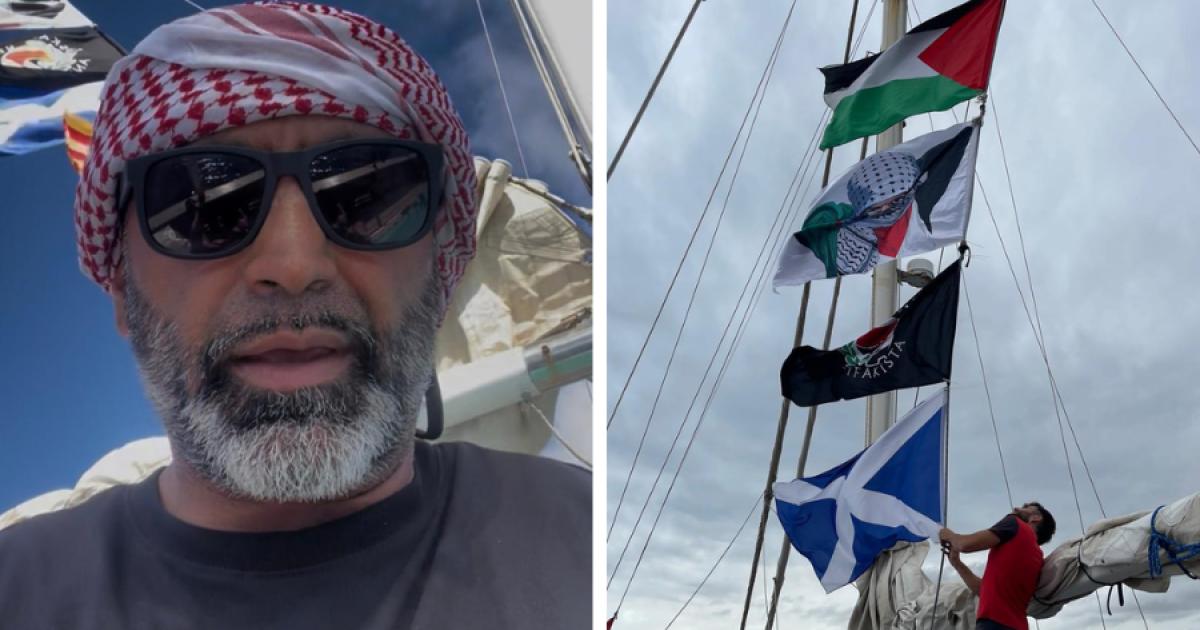Along with two other Scots; Margaret Pacetta and journalist Yvonne Ridley, Khan and Hickey had spent five weeks at sea in an attempt to deliver humanitarian aid to Gaza as part of the Global Sumud Flotilla.
42 ships had set sail for Gaza as part of the global flotilla (AP)(Image: )
However, last Wednesday, the flotilla, which consisted of 42 boats and more than 500 sailors, was intercepted by Israeli forces in international waters.
Activists were detained in Israel before being deported back to their countries of origin.
Now, supporters of Khan and Hickey have been invited to welcome them back to Scotland.
“You are welcome to join both families greet their loved ones, who have been at sea for over 5 weeks,” a poster read.
“Unsuccessful in opening the humanitarian corridor however determined more than ever to stand for justice. We must take our governments to account and Free Palestine.”
In a social media update on Tuesday, Khan’s wife Isma Tahir said her husband was ‘safe’ and on his way home.
She said: “I just wanted to personally thank each and every one of you for your incredible support, your letters, campaigning, messages, love, care, and duas.
“I can’t express how much your strength and solidarity have meant to me through these past days.
“As you can imagine, it’s been a rollercoaster of emotions we were told otherwise last night, hence the urgent release poster that went out early this morning. But the main thing is: he is safe, and he is coming home inshallah.”
Speaking on Monday afternoon, Pacetta, who was the first Scot to return home, said that she had been held in ‘vile’ conditions.
The 71-year-old grandmother, who was later taken to hospital, arrived at Glasgow Central Station where she spoke to supporters.
She said: “That was absolute hell. I’ve never experienced anything like that.
“They took all my meds, they took everything off me. They took my inhalers and my nebuliser, they eventually gave the nebuliser back but threw the medicine for it away.
Read more:
“They took my glasses off me and my hearing aids. They ripped my necklace off my neck and my watch.”
Pacetta added: “They gave us 10 slices of cucumber for 18 people, they gave us four slices of bread that was very stale. You’d break your teeth on it actually.
“The cucumber was covered in ants. There should be six people in the cell and we had 18 of us. We had no mattresses; we were sleeping on the floor and there was ants all over it. It was horrible.”
